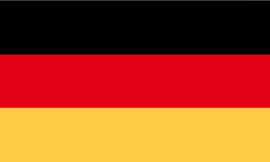German sports betting legislation may be heading for yet more controversy following a court ruling in the state of Hesse.

The Glücksspielstaatsvertrag, an agreement between the 16 German Bundesländer or states, was passed in 2012 to rule on a number of issues relating to gambling, the most notorious of which threatens to cut the country’s arcades down by 80 per cent from 2017.
One of the provisions was for the issue of 20 sports betting concessions across the country, with the state of Hesse being delegated to handle the initial legal processes. That has come under legal pressures, however, because some of Europe’s biggest online gaming companies have challenged various aspects of the selection procedure for issuing licences.
The Hesse decision came in the 5th Chamber of the Administrative Court at Wiesbaden earlier last week when an Austrian sports betting provider succeeded in postponing the announcement of the 20 selected companies that should receive concessions.
Seventy-three companies had originally applied for the concessions, whittled down to 20 after a long process and a trial was decided upon, with Hesse as the host state for the licensing procedure.
A succession of violations in the legality of the process has thrown the issue into confusion, however. This time the challenge was that the multi-level structure of the competition was legal and acceptable, but there was insufficient transparency.
This criticism of the regulations laid down by the inter-state treaty went on to also criticise the audit process and decision making, which was described as “opaque”.

